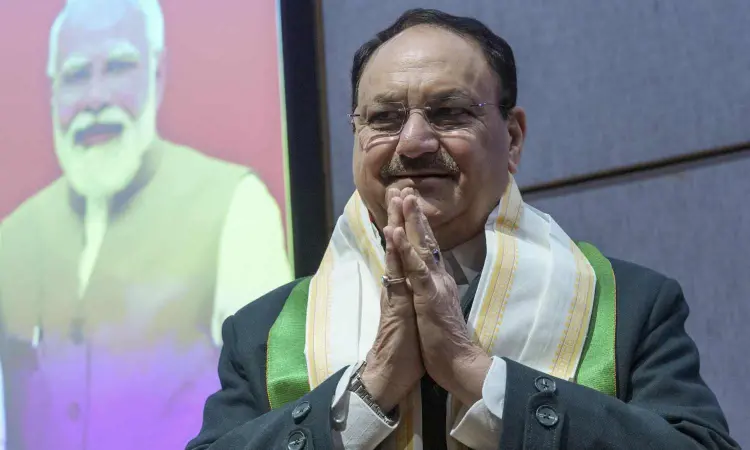- Home
- Medical news & Guidelines
- Anesthesiology
- Cardiology and CTVS
- Critical Care
- Dentistry
- Dermatology
- Diabetes and Endocrinology
- ENT
- Gastroenterology
- Medicine
- Nephrology
- Neurology
- Obstretics-Gynaecology
- Oncology
- Ophthalmology
- Orthopaedics
- Pediatrics-Neonatology
- Psychiatry
- Pulmonology
- Radiology
- Surgery
- Urology
- Laboratory Medicine
- Diet
- Nursing
- Paramedical
- Physiotherapy
- Health news
- Fact Check
- Bone Health Fact Check
- Brain Health Fact Check
- Cancer Related Fact Check
- Child Care Fact Check
- Dental and oral health fact check
- Diabetes and metabolic health fact check
- Diet and Nutrition Fact Check
- Eye and ENT Care Fact Check
- Fitness fact check
- Gut health fact check
- Heart health fact check
- Kidney health fact check
- Medical education fact check
- Men's health fact check
- Respiratory fact check
- Skin and hair care fact check
- Vaccine and Immunization fact check
- Women's health fact check
- AYUSH
- State News
- Andaman and Nicobar Islands
- Andhra Pradesh
- Arunachal Pradesh
- Assam
- Bihar
- Chandigarh
- Chattisgarh
- Dadra and Nagar Haveli
- Daman and Diu
- Delhi
- Goa
- Gujarat
- Haryana
- Himachal Pradesh
- Jammu & Kashmir
- Jharkhand
- Karnataka
- Kerala
- Ladakh
- Lakshadweep
- Madhya Pradesh
- Maharashtra
- Manipur
- Meghalaya
- Mizoram
- Nagaland
- Odisha
- Puducherry
- Punjab
- Rajasthan
- Sikkim
- Tamil Nadu
- Telangana
- Tripura
- Uttar Pradesh
- Uttrakhand
- West Bengal
- Medical Education
- Industry
Step up preventive measures to control Dengue and malaria, Health Minister tells States

New Delhi: Union Health Minister, Shri Jagat Prakash Nadda, reviewed the current Dengue and Malaria situation in the country with a view to galvanise preventive activities being undertaken by the States on 10 September 2025.
The meeting was attended by the Union Health Secretary, Smt. Punya Salila Srivastava and senior officers of the Union Health Ministry.
During the review, Shri Nadda took stock of the current status and key challenges in the prevention and control of Dengue and Malaria. He urged States, local bodies and communities to intensify preventive and control measures, particularly during this high-risk period, to safeguard public health and sustain the gains made in reducing the burden of vector-borne diseases.
Also Read:Mumbai Sees Spike in Dengue Cases among children; doctors raise alarm
The Union Health Minister also issued an advisory to all Chief Ministers, urging them to remain vigilant in the coming months and to intensify preventive measures as well as community awareness activities for effective control of Dengue and Malaria.
Shri Nadda stressed the need for urgent and coordinated action against vector-borne diseases. He advised State Health Ministers to personally review the situation and prepare action plans within 20 days, while Municipal Corporations, Panchayats and local bodies were asked to intensify community awareness drives. Hospitals, including those under the Central Government, must ensure adequate drugs, diagnostics, beds and mosquito-free premises.
With water stagnation from recent rains creating breeding sites, States and local bodies were asked to step up preventive measures. Intensive IEC and social media outreach will continue to promote community participation and personal protection. He also instructed that a high-level review meeting also be undertaken specifically for Delhi and NCR to closely assess the dengue situation and ensure advance preparedness.
The Union Health Minister underlined that India has made significant progress in combating Malaria. The country has achieved a reduction of over 78% in malaria cases and nearly 78% in malaria-related deaths between 2015 and 2024. Further, 160 districts have reported zero malaria cases between 2022-24, and 33 States/UTs have achieved API (Annual Parasite Incidence) less than one, except three states.
The Government of India has launched multiple initiatives towards malaria elimination, including the National Strategic Plan for Malaria Elimination (2023-27), implementation of the Integrated Health Management Platform (IHIP) for real-time monitoring, enhanced ASHA incentives, large-scale distribution of Long-Lasting Insecticidal Nets (LLINs), refresher trainings for laboratory technicians, and recognition of districts achieving “Zero Malaria” status. India has set the goal of eliminating malaria by 2030.
On Dengue, Shri Nadda noted that all States/UTs (except Ladakh) are endemic to Dengue and Chikungunya, and the risk of outbreaks is highest in the monsoon and post-monsoon period. The National Dengue Control Strategy is being implemented through State Vector-Borne Disease Cells with focus on surveillance, case management, vector control, inter-sectoral coordination and community awareness.
The Government of India has also strengthened diagnostic capacity with 869 Sentinel Surveillance Hospitals and 27 Apex Referral Laboratories providing free testing facilities. During 2025 (till date), more than 5,520 Dengue and 2,530 Chikungunya diagnostic kits have been supplied to States. Intensive IEC activities, observance of Anti-Dengue Month (July) and National Dengue Day (16th May), and illumination of India Gate on World NTD Day (30th January) were part of the nationwide campaign to accelerate preventive measures.
Also Read:Over 18,900 organ transplants in 2024, says JP Nadda
Kajal Rajput joined Medical Dialogues as an Correspondent for the Latest Health News Section in 2019. She holds a Bachelor's degree in Arts from University of Delhi. She manly covers all the updates in health news, hospitals, doctors news, government policies and Health Ministry. She can be contacted at editorial@medicaldialogues.in Contact no. 011-43720751


